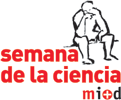IMDEA Networks

Internet of People - An Approach to People-Centric Internet of Things

Prof. Dr. Fernando Boavida, Catedrático, Facultad de Ciencia y Tecnología, Universidad de Coímbra, Portugal
External Presentation (External Speaker)
Technology now offers the possibility of delivering a vast range of low-cost people-centric services to citizens. Internet of Things (IoT) supporting technologies are becoming robust, viable and cheaper. Mobile phones are increasingly more powerful and disseminated. On the other hand, social networks and virtual worlds are experiencing an exploding popularity and have millions of users. These low-cost technologies can now be used to create an Internet of People (IoP), a dynamically configurable integration platform of connected smart objects that allows enhanced, people-centric applications. As opposed to things-centric ones, IoP combines the real, sensory world with the virtual world for the benefit of people while it also enables the development of sensing applications in contexts such as e-health, sustainable mobility, social networks enhancement or fulfilling people’s special needs. This talk identifies the main challenges, a possible approach, and key enabling technologies for a people-centric society based on the Internet of Things.
About Fernando Boavida
 Fernando Boavida received his PhD in Informatics Engineering in 1990, and he currently is Full Professor at the Department of Informatics Engineering (DEI) of the Faculty of Sciences and Technology of the University of Coimbra. He is the founder of the Laboratory of Communications and Telematics (LCT) of DEI, the Director of the Centre for Informatics and Systems of the University of Coimbra (CISUC), and the Strategic Director for Communications and Information Technology of the University of Coimbra.
Fernando Boavida received his PhD in Informatics Engineering in 1990, and he currently is Full Professor at the Department of Informatics Engineering (DEI) of the Faculty of Sciences and Technology of the University of Coimbra. He is the founder of the Laboratory of Communications and Telematics (LCT) of DEI, the Director of the Centre for Informatics and Systems of the University of Coimbra (CISUC), and the Strategic Director for Communications and Information Technology of the University of Coimbra.
His main research interests are wireless sensor networks, mobility, quality of service, and computer networks in general. He is author/co-author of more than 160 international publications (books, book chapters, refereed journals and conference proceedings) and 50 national publications. He was the chairman of the Program Committee of QofIS’2001, IDMS-PROMS’2002, NETWORKING 2006, WWIC 2007, FMN 2008, EWSN 2010, FMN 2012, IWQoS 2012, and ACM SIGCOMM FhMN 2013 international conferences/workshops. He has been involved in numerous program committees of major international conferences, including INFOCOM 2006 and 2007. He participated in many European projects, such as E-NEXT (FP6 Network of Excellence on Emerging Networking Experiments and Technologies) EuQoS (End-to-end Quality of Service support over heterogeneous networks, IST-FP6-2004-004503), WEIRD (WiMAX Extension to Isolated Research Data networks, IST FP6 Integrated Project 034622), OpenNet (Open Interconnect for the Internet Community, IST-FP6 Specific Support Action 035185), CONTENT (Content Networks and Services for Home Users, IST-FP6-0384239), GINSENG (Performance Control in Wireless Sensor Networks”, ICT-FP7-224282) and MICIE (Tool for systemic risk analysis and secure mediation of data ex-changed across linked CI information infrastructures”, ICT-FP7-225353).
He is a senior member of the IEEE and a licensed Professional Engineer. He is a member of the Editorial Advisory Board of the Computer Communications journal.
Este evento se impartirá en inglés y constará de una sesión de preguntas y respuestas al concluir la ponencia

